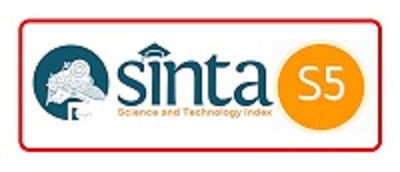Implementasi Konsep Bagi Hasil Produk Pembiayaan Ditinjau Dari Fatwa DSN-MUI Nomor 14 DAN 15 Tahun 2000 (Study Kasus Bank Syariah Mandiri KCP Curup)
DOI:
https://doi.org/10.29240/disclosure.v1i1.2932Keywords:
Profit sharing, financing, DSN-MUI fatwa,Abstract
The purpose of this study is to find out how to apply the concept of profit sharing to financing products at Bank Syari'ah Mandiri KCP Curup which includes financial administration records which will be analyzed with DSN fatwa no. 14/DSN-MUI/IX/2000 and the profit-sharing method analyzed by DSN fatwa no. 15/DSN-MUI/IX/2000. This research is a field research with a qualitative descriptive approach. The main data source of this research comes from field data by collecting data from informants. The results showed that the profit sharing at Bank Syari'ah Mandiri KCP Curup was applied to Chanelling financing and Revolving Fund Financing. In terms of recording financial administration, when the transaction is related to bank disbursements the method used is accrual basis while when the transaction is related to bank receipts the method used is cash basis. This is in accordance with DSN fatwa no. 14/DSN-MUI/IX/2000. Chanelling financing method used is revenue sharing and Revolving Fund Financing cannot be classified into profit sharing or revenue sharing, the determination of the amount of bank profit is based on the use of capital by customers each month as seen from customer account mutations so that it is not relevant to DSN fatwa no. 15/DSN-MUI/IX/2000.
Downloads
References
Arifin, Muhammad Bin Badri. 2011. Riba dan Tinjauan Kritis Perbankan Syari’ah, Tegal: Darul Ilmi.
Kara, Muslimin. 2013. Konstribusi Pembiayaan Perbankan Syariah Terhadap Pengembangan Usaha Mikro Kecil Dan Menengah (UMKM) Di Kota Makasar. Asy-Syir'ah: Jurnal Ilmu Syari'ah dan Hukum, 47(1). 269-302.
Koni, Wiwin. 2014. Sistem Bagi Hasil Musyarakah dalam Perspektif Amanah (Studi Pada Bank Muammalat Cabang Gorontalo). Jurnal Al-Buhuts, 10 (1)
Majelis Ulama Indonesia. 2011. Himpunan Fatwa MUI Sejak 1975, Jakarta: Erlangga
Noor, Juliansyah. 2011. Metodologi Penelitain. Jakarta: Kencana
Lewis, Mervyn K. dan Latifa M. 2011. Algaoud, Perbankan Syari’ah: Prinsip, Praktik, dan Prospek, Jakarta: Serambi
Purnamasari, Ike. (2014). Analisis Perbandingan Revenue and Profit Sharing pada Sistem Mudharabah pada PT. BPRS Hijrah Rahmah Samarinda. Mazahib, 13(1).
Rivai, Veithzel dan Andria Permata Veithzel. 2008. Islamic Financial Management, Jakarta: Raja Grafindo Persada.
Sugiyono. 2011. Metodologi penelitian kuantitatif kualitatif dan R&D. Bandung : Alpabeda
Susana, Erni. & Prasetyanti, Annisa. 2011. Pelaksanaan dan Sistem Bagi Hasil Pembiayaan Al-Mudharabah pada Bank Syariah. Jurnal keuangan dan Perbankan, 15(3). 466-478
Sholihin, Ahmad Ifham. 2013. Pedoman Umum Lembaga Keuangan Syariah. Jakarta: Gramedia Pustaka Utama.
Zubair, Muhammad Kamal. 2011. Mekanisme Bagi Hasil pada Lembaga Keuangan Mikro Syariah (Studi Persepsi Nasabah tentang Pembiayaan Bagi Hasil). Inferensi: Jurnal Penelitian Sosial Keagamaan, 5(1), 41-51.
Lian Sri Rezki (Sharia Funding Executive BSM KCP Curup), Wawancara.
Lisa Susanti (Sales Assistant BSM KCP Curup), Wawancara.
Downloads
Published
How to Cite
Issue
Section
Citation Check
License
Copyright (c) 2021 Ranaswijaya Ranaswijaya

This work is licensed under a Creative Commons Attribution-ShareAlike 4.0 International License.
Authors who publish with this journal agree to the following terms:
- Authors retain copyright and grant the journal right of first publication with the work simultaneously licensed under a Creative Commons Attribution License (CC BY-NC-SA 4.0) that allows others to share the work with an acknowledgment of the work's authorship and initial publication in this journal.
- Authors are able to enter into separate, additional contractual arrangements for the non-exclusive distribution of the journal's published version of the work (e.g., post it to an institutional repository or publish it in a book), with an acknowledgment of its initial publication in this journal.
- Authors are permitted and encouraged to post their work online (e.g., in institutional repositories or on their website) prior to and during the submission process, as it can lead to productive exchanges, as well as earlier and greater citation of published work (See The Effect of Open Access).














